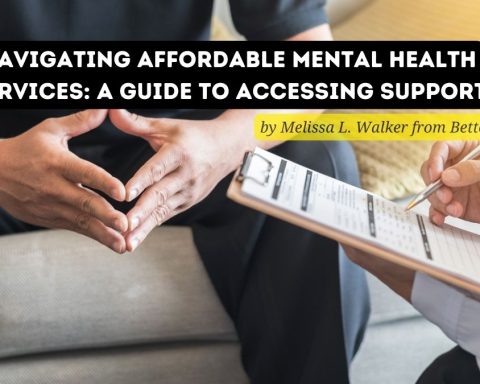Presented by BetterHelp.
With a veritable world of research and information in our pockets, the internet is a vast repository of knowledge. The online medical space offers valuable resources for individuals seeking to improve their health and well-being. From reputable websites to informative articles, online platforms provide accessible health education and empowerment avenues.
While it is important to consider the limitations of online health information, using access responsibly may contribute to being a more informed patient.
How can we leverage this power and what should we stay aware of?
The Power of Online Resources
Online resources play a crucial role in democratizing health education, allowing individuals from diverse backgrounds to access valuable information at their fingertips. Whether you want to understand a specific medical condition, adopt healthier lifestyle habits, or explore treatment options, the internet offers a wealth of resources tailored to your needs.
The use of wellness based digital devices and applications that pair with advancing technology can also be a way to combine the power of online resources and personal health. Wearable tech devices can monitor a wide array of health statistics, giving us a real-time view of our data.
We can use that information to filter online research or when reporting symptoms in our doctor’s office. It truly is a time of unprecedented power in the hands of individuals regarding their health.
Using Online Medical Resources Responsibly
There are, however, some obvious pitfalls to avoid when researching your health online.
Remember that information could be unregulated or outdated. Proceed with caution and try to verify with multiple sources.
It’s also important to consider the validity of the source. Blogs may not be as reliable as a hospital website and research itself may offer some of the best information.
However, even online research articles may not give the full picture. One study can suggest the opposite results to another, and statistics can be confusing or easily slant into one’s belief system.
For these reasons, online research should not replace personalized medical advice. Whether researching medications, mental wellness, or physical conditions, online research is safest with proper medical care.
Keep an open mind while investigating. This can help you avoid seeking behavior or confirmation bias. Confirmation bias can affect an individual’s ability to properly evaluate the validity of information due to preconceived beliefs.
There are some things to avoid, but how can you maximize the benefit of online medical advice?
Setting Up For Success: Navigating Reliable Platforms
When seeking health information online, it’s essential to navigate reputable platforms that prioritize accuracy and credibility. Websites endorsed by medical professionals, government agencies, and reputable health organizations are excellent starting points for reliable information.
Look for sources that cite scientific research, adhere to ethical standards, and provide transparent disclosure about their content.
Sites like BetterHelp maintain a database of advice-based articles that have all been fact-checked by licensed professionals. See examples of this that relate to researching medications here: https://www.betterhelp.com/advice/medication/
Enhancing Your Health Online
Whether researching symptoms, exploring treatment options, or seeking lifestyle tips for better health, online resources can be invaluable tools on your wellness journey. Online health information can be particularly helpful for acute concerns like medication interactions or side effects and when to seek medical care for a health concern.
You may also find and connect with communities online. Meeting people with personal experience with various conditions can add to the overall picture of the full spectrum of wellness.
By considering our biases and the sometimes tenuous quality of the information online, we can make strong decisions and involve our medical care professionals when appropriate. These behaviors may help insulate us from taking the wrong path of medical advice.
By leveraging the power of the internet, you can empower yourself with knowledge, make informed decisions, and take proactive steps toward improving your overall well-being.








